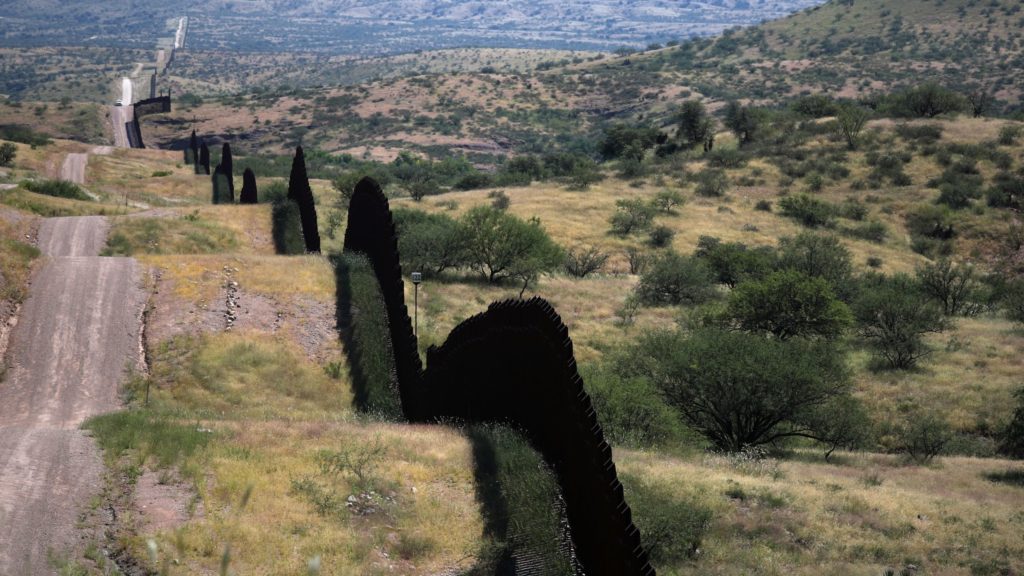Religious leaders, migrant advocates and migrants gathered in Nogales, Sonora, Mexico, for a news conference in which they denounced attacks on the right to asylum and pledged to continue supporting those who face long waits to seek asylum in the United States.
On March 21, leaders of pro-migrant organizations in the U.S., including Kino Border Initiative, Jesuit Refugee Service and the Ignatian Solidarity Network, participated in the 'We Say Welcome' bilingual gathering marking three years since Title 42 was invoked in March 2020 by the Trump administration.
According to the U.S. Customs and Border Protection website, this policy was implemented to "help prevent the introduction of COVID-19 into border facilities and into the United States." The CPB stated "persons subject to the order will not be held in assembly areas for processing and instead will be immediately removed to their country of last transit."
For leaders and activists, Title 42, which has continued under President Joe Biden's administration and is expected to end in May, limits access to asylum and puts migrants at risk of being quickly returned to dangerous situations. The event comes on the heels of the Biden administration's proposal to enact new restrictions on access to asylum in the U.S.
The March 21 meeting in Nogales took place right at the wall that separates Mexico from the U.S., near the DeConcini port of entry.
"We are here because we are brothers and sisters … and we are here because our governments are choosing to pass cruel policies that elicit harm and create suffering at the border," said Joanna Williams, executive director of the Kino Border Initiative, a faith-based organization working in Nogales, Arizona, and Nogales, Sonora, Mexico. "We are here commemorating the third anniversary of Title 42 -- three years of suffering, of exclusion, of expulsions of people looking to survive here in Nogales (Mexico)."
According to a CBP report, during fiscal year 2022, a record number of more than 2.2 million encounters were recorded, which includes expulsions under Title 42, apprehensions under Title 8 and repeated attempts to cross the border. Thousands of asylum seekers have been waiting in Mexico to present their case.
Recent reports also indicate that migrants from Venezuela, Cuba and Nicaragua outnumbered those from El Salvador, Guatemala and Honduras, who had accounted for the majority of migrants for the past decade.
At the Nogales event, Jesuit Father Brian Strassburger, who works with migrants in the Diocese of Brownsville, Texas, highlighted the "importance of accompanying those most in need at the borders" of the world.
"There are many things that make it difficult for those who come to the border," he said. "In my work, I am inspired by the faith of the migrants and how it is a source of hope that gives them the strength they need to move forward."
Speaking in English and Spanish, Father Strassburger added, "U.S. border policy continues to delay and exclude families like those gathered here. We have already seen many problems with the CBP One application."
The priest highlighted the difficulties with the registration process to obtain an appointment, because migrants do not have access either to a smartphone or Internet connection. This adds more stress to the already agonizing wait of migrants forced to remain in Mexican territory while they aspire to enter the U.S. and begin an asylum application process, he said.
Pro-immigrant organizations and leaders were especially concerned about vulnerable migrant populations such as children, the elderly and pregnant women, logging into the app at shelters every day in the hope of getting an appointment.
"Can we treat migrants with the same values we claim to have as a country? I believe we can," the Jesuit said in Spanish. "Surely, we can respond better to open ways to offer a true Christian welcome to those who come to our border, who enter our country and contribute to our society."
Behind each decision to migrate is a story of hunger, injustice, violence, high crime rates and persecution in their own countries, which have left them no choice but to leave their homeland, advocates said.
"What I find, time and time again, is a lack of political will to create humane and dignified paths for migrants, but what I want to say is come and see, meet migrants and hear their stories," Father Strassburger said.
At the gathering, a woman named Leslie shared her story.
"This is an experience that will never be erased from my mind because of all the misfortunes I have gone through since I left my country of origin," said Leslie, who has been waiting for six months to cross to U.S. soil to present her asylum claim. During her speech, she asked the U.S. government for compassionate treatment and support of migrants, because all they want is to feel is that they could live in freedom, peace, and security.
"We certainly pray for just and humane immigration reform, but our prayers are empty if we are not willing to back them up with action," said Jesuit Father Scott Santarosa, pastor of Our Lady of Guadalupe Church in San Diego, California.
"Come and raise our voices before those in power to demand justice for our brothers and sisters from Venezuela, Nicaragua, Michoacán, and other parts of Mexico," he said. "We have to put our faith into action."

